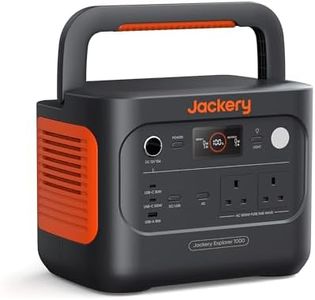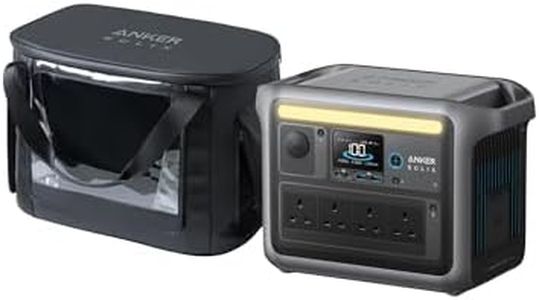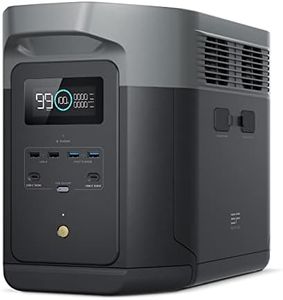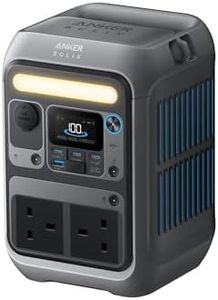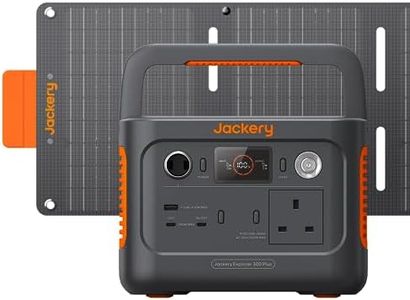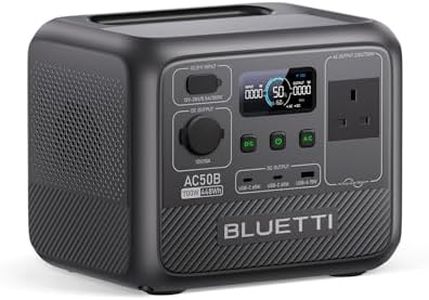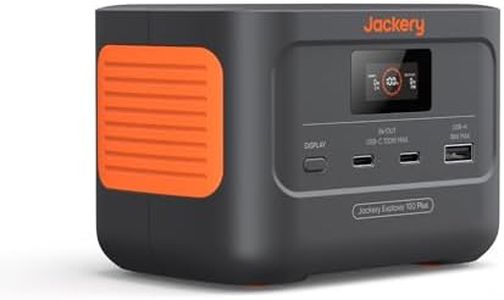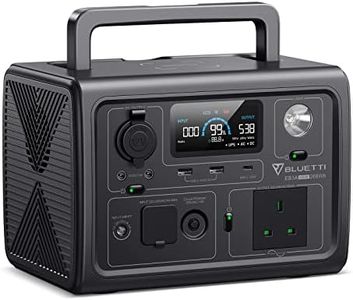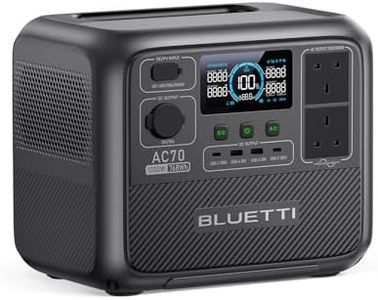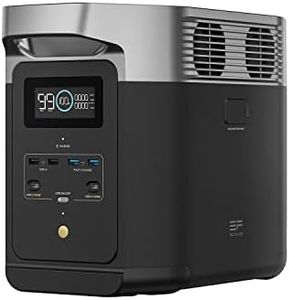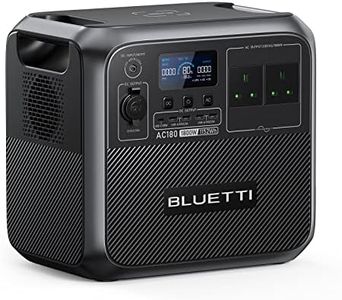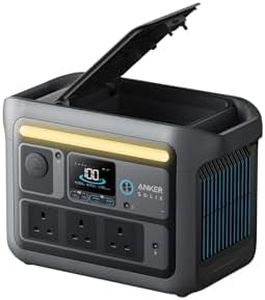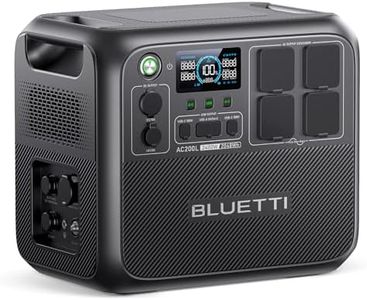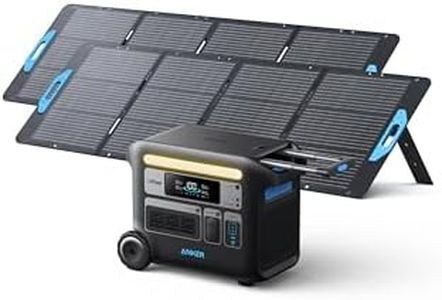We Use CookiesWe use cookies to enhance the security, performance,
functionality and for analytical and promotional activities. By continuing to browse this site you
are agreeing to our privacy policy
10 Best Solar Generators
From leading brands and best sellers available on the web.Recommended lists
Buying Guide for the Best Solar Generators
When choosing a solar generator, it's important to consider your specific energy needs and how you plan to use the generator. Solar generators are a great way to harness renewable energy for powering devices and appliances, especially in off-grid situations or during power outages. They are portable, eco-friendly, and can be a reliable source of power if chosen correctly. Understanding the key specifications will help you select a solar generator that best fits your requirements.Battery CapacityBattery capacity, measured in watt-hours (Wh), indicates how much energy the generator can store. This is crucial because it determines how long the generator can power your devices. Smaller capacities (under 500Wh) are suitable for charging small electronics like phones and laptops, while medium capacities (500-1000Wh) can handle small appliances like mini-fridges. Larger capacities (over 1000Wh) are ideal for running multiple devices or larger appliances. Consider your energy consumption needs to choose the right capacity.
Power OutputPower output, measured in watts (W), tells you how much power the generator can provide at any given time. This is important for understanding what devices you can run simultaneously. Low power outputs (under 300W) are good for small electronics, medium outputs (300-1000W) can handle small appliances, and high outputs (over 1000W) are needed for larger appliances or multiple devices. Match the power output to the devices you plan to use.
Solar Panel CompatibilitySolar panel compatibility refers to the generator's ability to connect with solar panels for recharging. This is important for ensuring efficient energy collection. Some generators come with built-in panels, while others require separate panels. Consider the type and size of solar panels you have or plan to purchase, and ensure the generator supports them. Compatibility affects how quickly the generator can recharge, so align it with your energy replenishment needs.
PortabilityPortability is about the size and weight of the solar generator, which affects how easy it is to transport. This is crucial if you plan to use the generator for camping, traveling, or moving it around frequently. Lightweight and compact models are ideal for portability, while larger models may offer more power but are less convenient to move. Consider how and where you will use the generator to determine the right balance between power and portability.
Charging OptionsCharging options refer to the different ways you can recharge the solar generator, such as solar panels, AC outlets, or car chargers. This is important for flexibility in various situations. Generators with multiple charging options offer more versatility, allowing you to recharge in different environments. Think about where you will use the generator and choose one with charging options that suit your lifestyle and access to power sources.
Durability and Build QualityDurability and build quality determine how well the solar generator can withstand environmental conditions and regular use. This is important for ensuring longevity and reliability. Generators with robust construction and weather-resistant features are better suited for outdoor use and harsh conditions. Consider the environments in which you will use the generator and select one with a build quality that matches those conditions.

